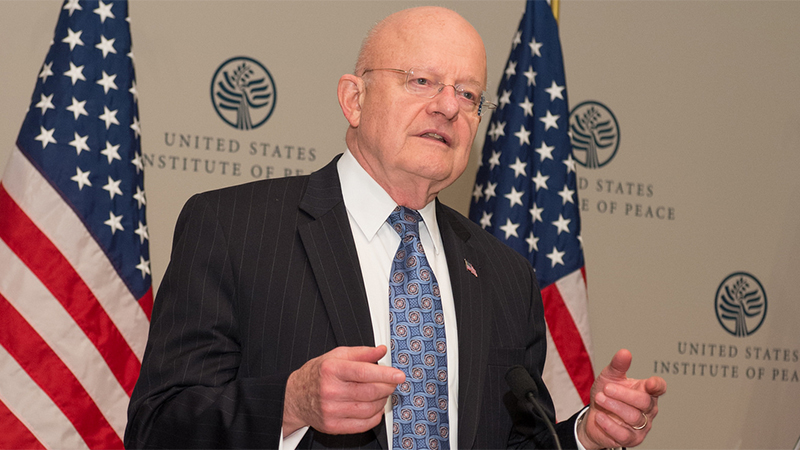
In a hearing in front of the Senate Armed Services Committee, Director Of National Intelligence James Clapper testified that the unclassified version of the executive-mandated report on Russia’s involvement in the 2016 election is scheduled to be released early next week and will “push the envelope” to provide the public with as much information as possible.
“We plan to brief the Congress and release an unclassified report to the public early next week,” Clapper said. “I intend to push the envelope as much as I can, particularly on the unclassified version, because I think that the public should know as much as possible.”
Clapper added that the report will ascribe multiple motivations for the hacks, which members of the intelligence community have in the past been somewhat divided on.
The report will likely corroborate and add to the report made by the Department of Homeland Security on Oct. 7, stating that the agency was confident that the Russian government was responsible for the hack.
“What we’ve since learned reinforces the statement that we made in October,” said Clapper. “We stand actually more resolutely on the strength of that statement that we made.”
Sen. John McCain, R-Ariz., noted that though his committee intends to hold more hearings on this issue, when it comes to issues of cybersecurity and hacking, the “stovepiping” of congressional jurisdiction likely makes it harder for intelligence agencies to report their findings and move forward on action.
In order to create a more efficient system for investigating the ramifications of foreign hacking into U.S. elections, Reps. Eric Swalwell, D-Calif., and Elijah Cummings, D-Md., plan to reintroduce a bill by the end of the week that would establish an independent “National Commission on Foreign Interference in the 2016 Election.”
“An independent effort would encompass what every congressional intelligence committee is trying to take on,” Swalwell told MeriTalk. “This would be a commission that would be outside Congress.”
The original bill was introduced in December 2016, but did not move past referral to the House Committee on Foreign Affairs before the end of the legislative session.
According to Swalwell, the release of the executive report, which he hopes will declassify what he has already seen, will likely provide impetus for the reintroduced bill.
“Often in Congress, public sentiment will move legislation along faster,” Swalwell said. “Since it was last introduced, the evidence has only become stronger that Russia was involved.”
Sens. Ben Cardin, D-Md., and Dianne Feinstein, D-Calif., are also planning to introduce a near-identical bill in the Senate which would create a “National Commission on Russian Interference in the 2016 Election.”
“Certainly there is bipartisan concern,” Swalwell said, pointing to the views expressed in today’s Armed Services Committee hearing as evidence that Republicans and Democrats could end up working together on the issue.
On Wednesday, a statement issued by 15 intelligence and foreign policy experts reinforced the need to establish just such a bipartisan commission, especially due to the doubts some Americans still have over whether Russia was truly responsible for the hack.
“Such doubts only reinforce why an independent inquiry should occur outside of Congress,” they wrote. “That is the only way to ensure that the investigation is comprehensive and not siloed within a certain congressional committee’s jurisdiction. This inquiry should occur immediately. Anything less than a swift investigation will leave us vulnerable to another attack and, possibly worse, permit and normalize future interference.”
“I think there’s a difference between skepticism and disparagement,” Clapper testified about such doubts, particularly those coming from President-elect Donald Trump. “I think it’s hugely important that the intelligence community conduct itself and be seen as independent.”
“Without that confidence I just don’t want a situation where our workforce decides to walk,” added Adm. Michael S. Rogers, commander of the United States Cyber Command and director of the National Security Agency.
Rogers and Clapper also stated that Julian Assange of WikiLeaks, who claims that Russia was not the source of leaked information, is not the type of person who should be believed over the assessments of the U.S. intelligence agencies.
